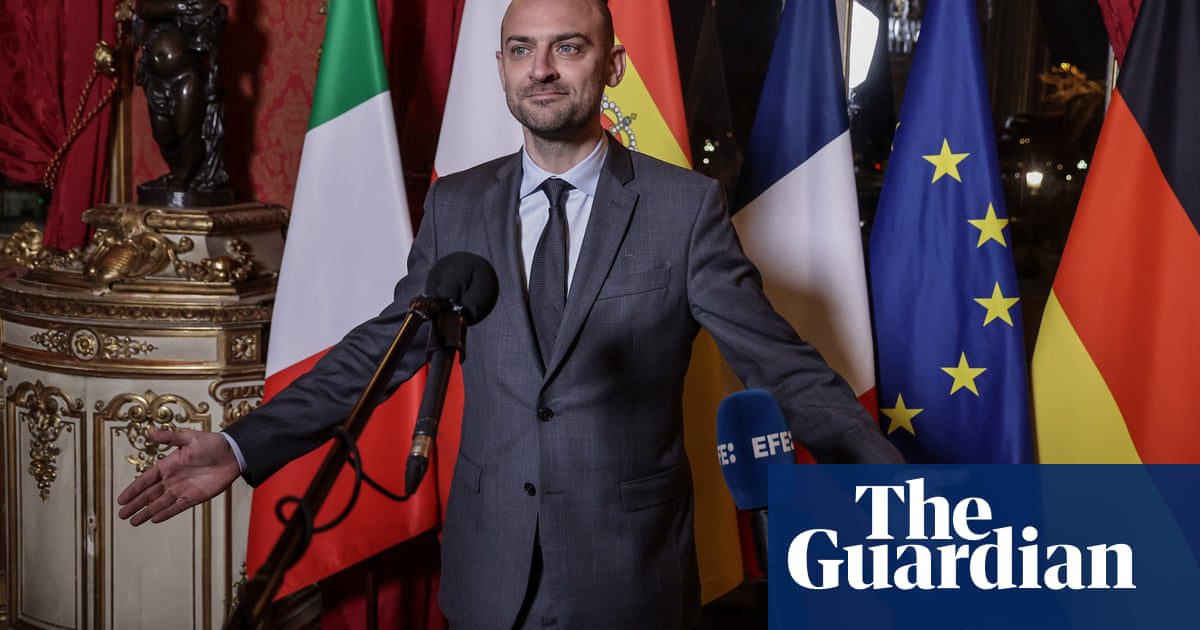
Key European nations, including the United Kingdom, France, and Germany, have asserted their necessity in future discussions concerning Ukraine’s future, emphasizing that a balanced agreement with security assurances is essential for enduring peace.
In a joint statement following a meeting of foreign ministers in Paris, seven European countries alongside the European Commission declared, “Our collective aim should be to empower Ukraine. Both Ukraine and Europe must play a pivotal role in any negotiation efforts.”
The statement further emphasized, “Robust security guarantees for Ukraine are essential. Achieving a just and lasting peace is vital for a stable transatlantic security framework.” European leaders expressed eagerness to engage in discussions on the path forward with their American counterparts.
This meeting occurred shortly after US President Donald Trump announced discussions with Russian President Vladimir Putin, indicating their readiness to commence negotiations to conclude the war in Ukraine.
These rapid developments have raised concerns across Europe, as there appear to be negotiations regarding the continent’s security happening without the involvement of its leaders. US Defense Secretary Pete Hegseth is scheduled to meet with NATO ministers in Brussels on Thursday, following a meeting with defense ministers advocating for Ukraine on Wednesday.
French Foreign Minister Jean-Noel Barrot asserted during the ministerial meeting that “no fair and lasting resolution can be achieved without European involvement.” This meeting included representatives from France, the UK, Germany, Poland, Italy, Spain, Ukraine, and the European Commission.
Both Germany’s Annalena Baerbock and Spain’s Jose Manuel Albares Bueno stressed that any decisions regarding Ukraine must include Ukraine itself and urged EU nations to present a unified front.
Albares Bueno further remarked, “We seek peace for Ukraine, but we demand that an unjust conflict ends with a just resolution.”
Polish Foreign Minister Radoslaw Sikorski highlighted the importance of “continued collaboration with the US” in discussions at the gathering, stating, “Close transatlantic cooperation is the best assurance for our continent’s security.”
In response to inquiries about European countries’ involvement in peace negotiations, White House Press Secretary Karoline Leavitt stated, “I do not have any information regarding the engagement of European nations at this moment.”
Planned weeks in advance, the Paris meeting aimed to define the defense strategy for the bloc, enhance support for Ukraine, contemplate future peace talks, and strategize for discussions with the US administration at an upcoming security conference in Munich.
However, the agenda was disrupted after Hegseth made some of the most direct comments from the Trump administration regarding the prolonged conflict between Ukraine and Russia during discussions with Ukraine’s international supporters in Brussels on Wednesday.
He labeled the goal of reverting Ukraine to its pre-2014 borders as unrealistic and noted that the US does not consider NATO membership for Kyiv as a viable solution. “Pursuing this unattainable goal will merely extend the conflict and lead to further suffering,” he asserted.
Hegseth’s remarks were soon followed by a conversation between Trump and Putin, during which Trump confirmed that their teams had consented to initiate negotiations promptly. Diplomats revealed that European powers were not informed of the call beforehand and were taken aback by Hegseth’s candid stance.
Having dismissed NATO membership for Ukraine, Hegseth stated that peace must instead be achieved through “capable European and non-European forces,” not including US troops.
He also clarified that any British or European forces deployed in Ukraine would not be part of a NATO mission and would not be protected under the alliance’s Article 5 guarantee, implying they would rely solely on support from the involved nations.
UK Defense Secretary John Healey acknowledged Hegseth’s “request for European nations to increase their contributions,” affirming that “We are doing so, and we will continue to do so.” Following a bilateral meeting with Hegseth earlier that day, Healey announced that the UK plans to allocate £4.5 billion in military aid to Ukraine this year, as reported by the Times.
Earlier this week, Zelenskyy stated to the Guardian that Europe lacks the capability to provide reliable security assurances to Kyiv without the participation of the United States. “Security guarantees lacking American involvement are ineffective,” he asserted.
He suggested that a multinational deterrent force, established in Ukraine post-ceasefire, would need to consist of between 100,000 and 150,000 troops, significantly fewer than the 600,000-plus Russian forces currently occupying Ukraine.
“Europe does not currently have the capacity to deploy such a force,” indicated one senior European diplomat. “However, we cannot compel the US to deploy troops. We need to acknowledge this reality and determine what measures we can undertake.”
Another high-ranking European diplomat characterized the US position articulated by Hegseth as a hasty concession, questioning what there would be left to negotiate. This person also noted that any willingness from Ukraine to concede could encourage Russia to make greater demands in forthcoming negotiations.









